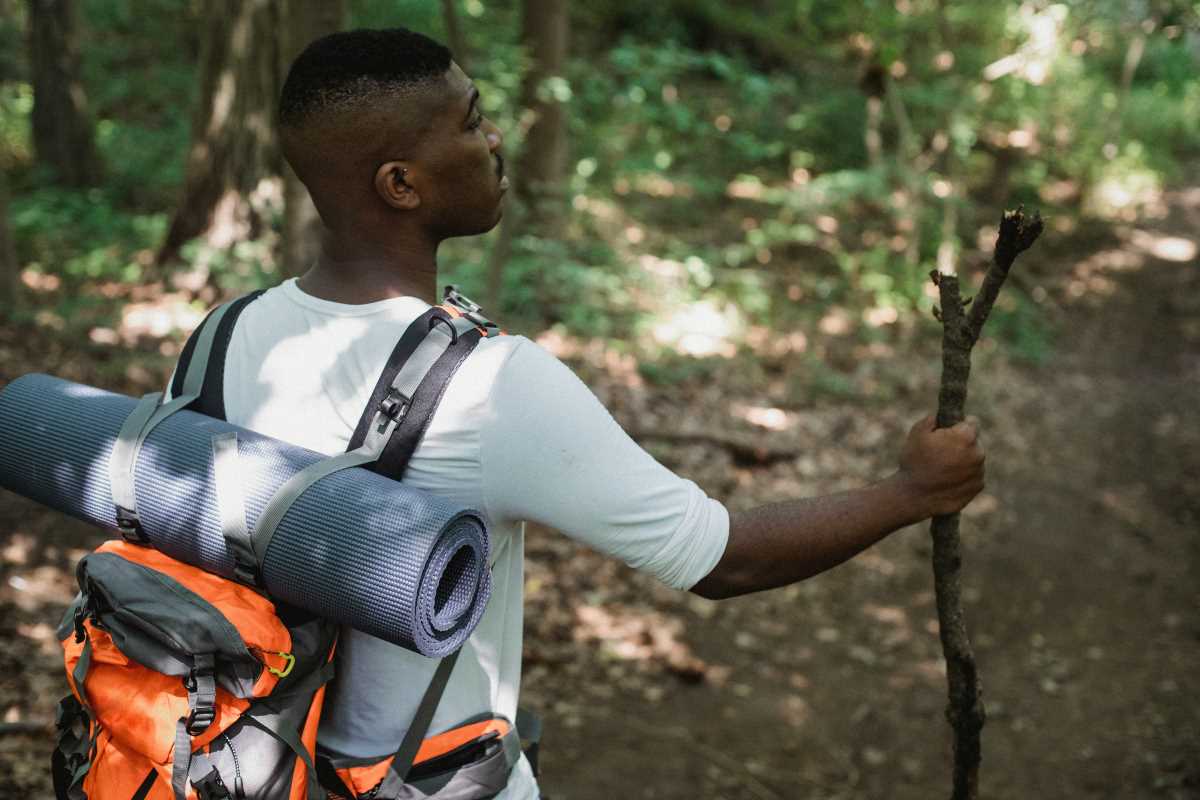Hiking offers more than just a physical adventure; it provides an unparalleled opportunity to connect deeply with the natural world. By cultivating intentional practices, your time on the trails can become a truly harmonious and enriching experience. If you’re seeking ways to deepen that connection, here are some mindful habits to apply on every hike.
1. Slow Down and Be Present
It’s easy to feel like you need to conquer the trail quickly, but rushing through a hike makes it harder to notice the beauty around you. Instead, adopt a slower pace. Pay attention to the rhythm of your steps as they crunch on fallen leaves or meet a rugged stone. Notice how the sunlight filters through the trees or how the cool breeze brushes your skin.
Being present means letting go of distractions. Put your phone on airplane mode and focus solely on the moment you’re in. This mindfulness creates space to fully appreciate the tranquility and wonder of your surroundings.
Practical Tip:
Try incorporating a breathing exercise during your hike. Take deep, measured breaths as you walk, syncing them with the movement of your feet. This will ground you in the moment and heighten your awareness.
2. Engage All Your Senses
To deepen your connection with nature, actively engage your senses. Notice the sights, sounds, smells, and even textures around you. Look closely at the intricate patterns of bark or the way moss grows in shady patches. Listen to birds calling, the rustle of leaves, or the distant sound of a stream. Smell the forest floor after rain or the sweetness of blooming wildflowers.
Touch can also forge a profound connection. Feel the rough surface of a rock, run your fingers along a weathered log, or dip your hands in a cool flowing brook. These small acts allow you to fully immerse yourself in nature.
Practical Tip:
Carry a small field notebook to jot down sensations that stand out. Cataloging these details brings a greater appreciation for even the tiniest elements of your hiking experience.
3. Observe Wildlife with Respect
Part of harmonizing with nature is observing its inhabitants without causing them harm or stress. Spotting wildlife can be a thrilling experience, whether it’s a busy squirrel gathering acorns or a deer quietly grazing nearby. However, it’s important to remember that you are a guest in their home.
Avoid sudden movements or loud noises that may scare animals away. Never feed wildlife, as human food can disrupt their natural diet and behavior. Use binoculars if you want a closer look, and always maintain a safe and respectful distance.
Practical Tip:
Learn to identify animal tracks or bird calls before your hike. This adds a layer of understanding and enjoyment to your observations.
4. Practice “Leave No Trace” Principles
One of the most vital ways to honor nature is by leaving it exactly as you found it. Adhering to the Leave No Trace principles ensures that trails and ecosystems are preserved for both wildlife and future hikers.
- Always pack out anything you pack in, including food wrappers, tissues, and biodegradable items.
- Stick to marked paths to avoid trampling vegetation.
- Refrain from picking wildflowers or disturbing natural formations.
- Never carve initials into trees or rocks.
By being a conscientious hiker, you minimize your impact on the environment and demonstrate respect for the natural world.
Practical Tip:
Carry a small trash bag to collect not only your own waste but also any litter you spot along the way. Your efforts can make a bigger difference than you realize.
5. Listen to Nature's Symphony
There’s a unique kind of music present in nature, one that soothes while drawing you closer to your surroundings. From the babble of a distant creek to the rustling of the wind in tall grass, these sounds form the backdrop of the wild.
To fully appreciate this symphony, walk in silence for stretches of your hike. Refrain from using headphones or filling the quiet with unnecessary chatter. The more you attune yourself to these natural sounds, the deeper your connection to the land will grow.
Practical Tip:
Pause occasionally to close your eyes and focus on the sounds around you. Try to identify layers in the soundscape, such as chirping insects, flowing water, or leaves moving in the breeze.
6. Express Gratitude for the Landscape
Taking time to practice gratitude transforms hiking into a reflective experience. Acknowledge the beauty and serenity of your surroundings and the opportunity to experience it firsthand. Such moments of gratitude remind us how precious untouched wilderness truly is.
This practice can be as simple as pausing at a stunning vista to silently appreciate the view. You might also express your gratitude through an action, such as silently thanking the forest or collecting trash left behind by others.
Practical Tip:
End each hike by journaling about your favorite moment or aspect of the day. Reflecting on what made the experience meaningful can make future hikes even more rewarding.
7. Respect the Environment Around You
One of the most significant ways to connect with nature is by respecting its rhythms and cycles. Be mindful if hiking near fragile habitats like meadows, wetlands, or alpine ecosystems. Stick to designated trails to minimize disruption to vulnerable areas and avoid moving or removing items like rocks or branches that play a role in the local ecosystem.
Remember to tread lightly and treat the environment as a sanctuary. Nature operates in delicate balance, and your awareness reinforces your role as a steward of its well-being.
Practical Tip:
Learn about the local ecosystem before your hike. Knowing the flora and fauna helps you appreciate the landscape and its importance on a larger environmental scale.
8. Give Yourself Time to Reflect
Hiking is as much a mental and emotional exercise as it is a physical one. Make time to reflect during your hike, whether that means stopping at a peaceful spot to meditate or simply pausing to soak in the moment. Reflecting creates space to realign your thoughts, focus on your intentions, and leave the trail feeling refreshed.
This sense of inner harmony is where the true magic of hiking lies. It allows you to not only witness nature but also feel a part of it.
Practical Tip:
Bring along a lightweight mat or small cushion so you can sit comfortably when you find a peaceful spot to pause and reflect.
Nature teaches us to slow down, to pay attention, and to cherish moments of stillness. When you approach your hikes with care and intention, you’ll find yourself not just walking through nature but walking alongside it. Each trail becomes a path to deeper understanding and peace. Lace up your boots, take a deep breath, and step forward with gratitude. Nature is waiting to welcome you.
 (Image via
(Image via


.jpeg)


